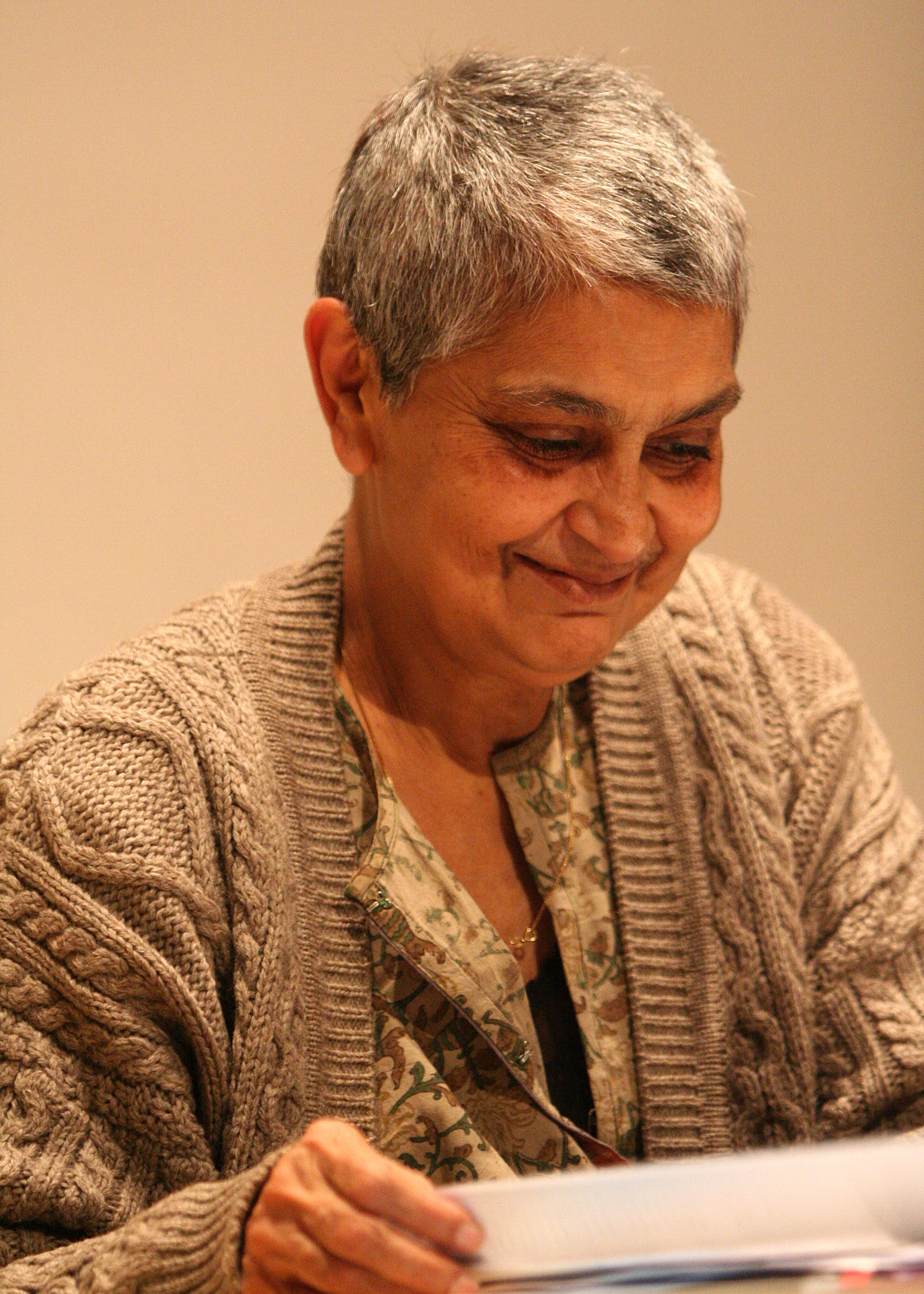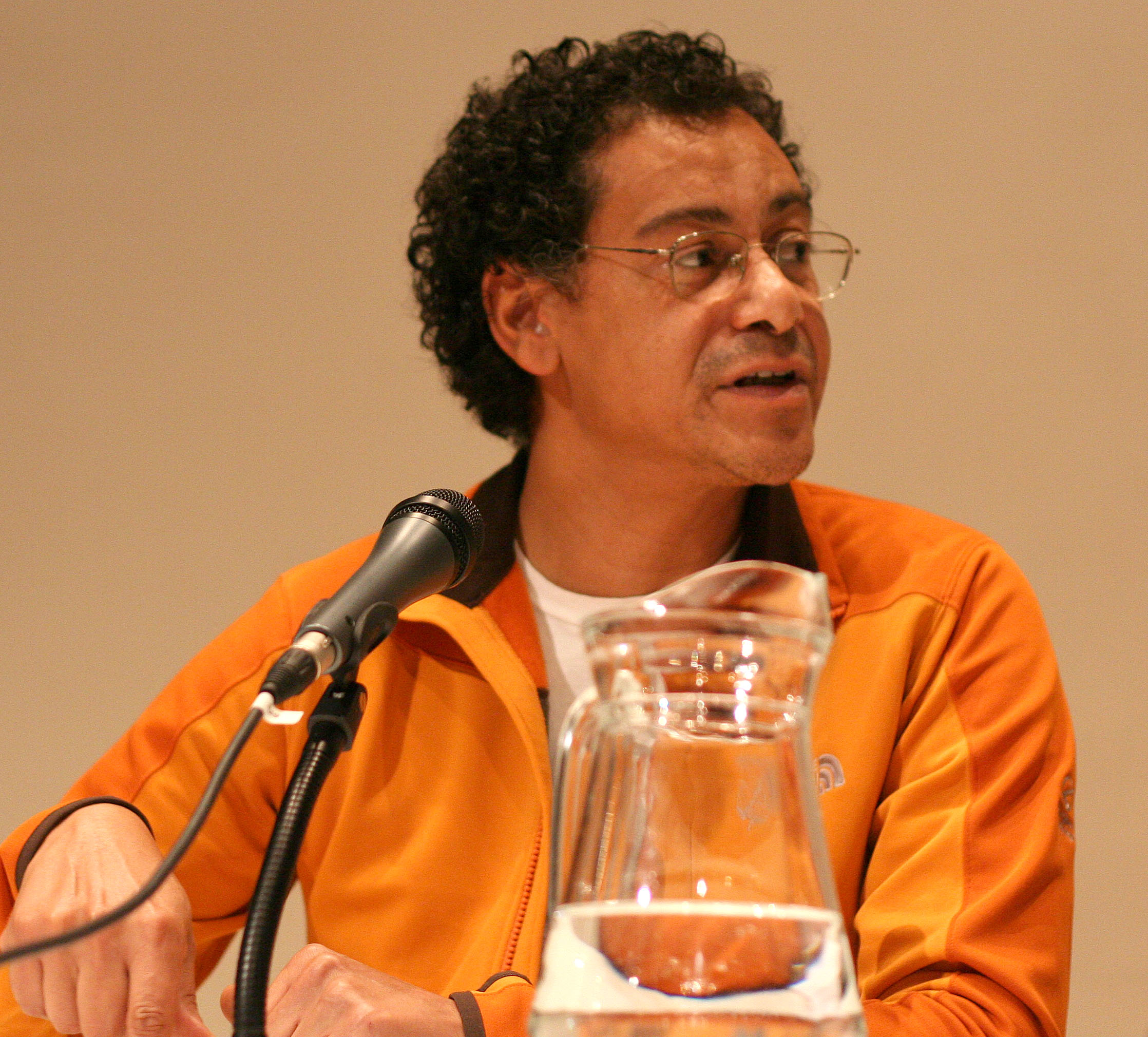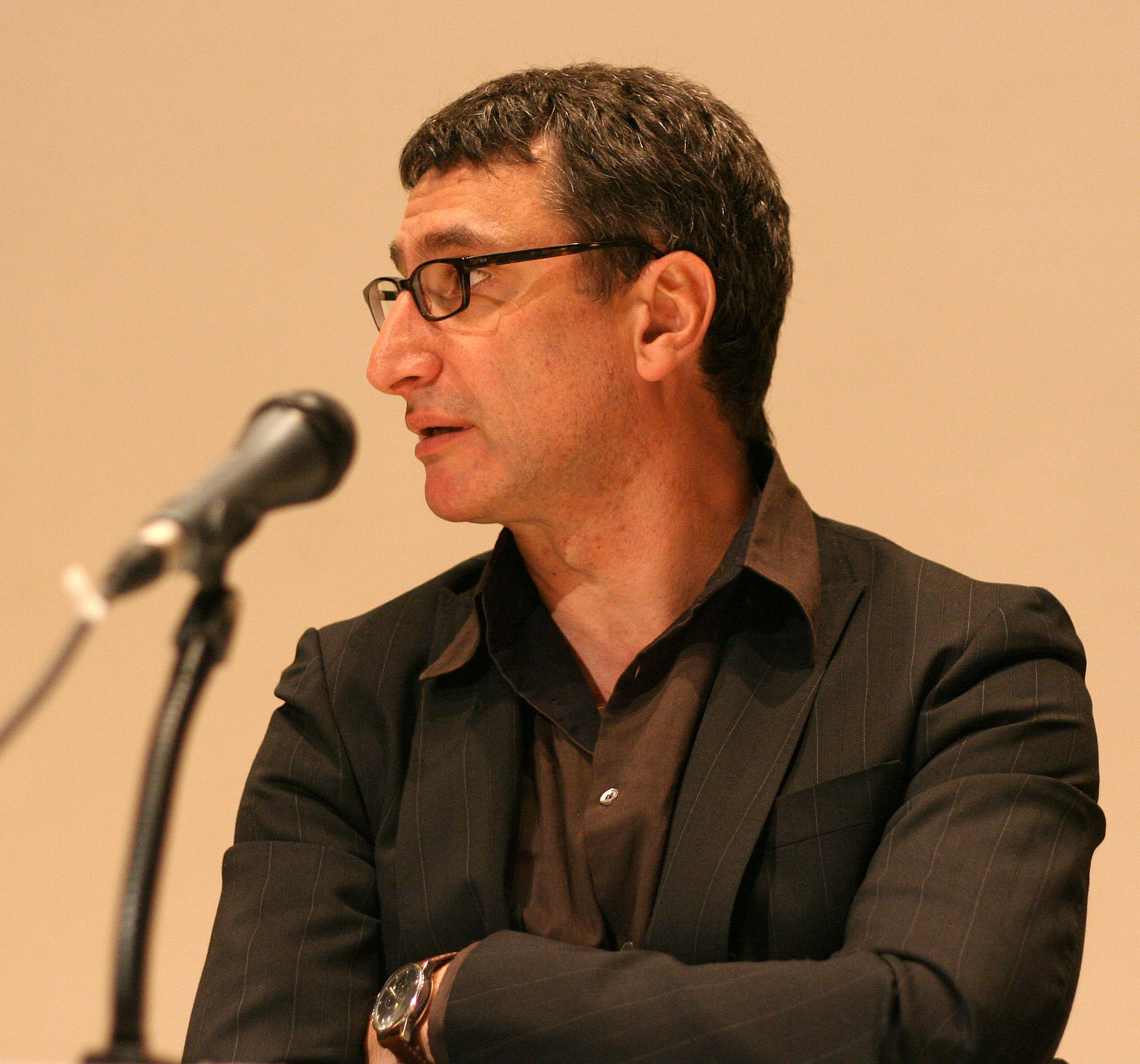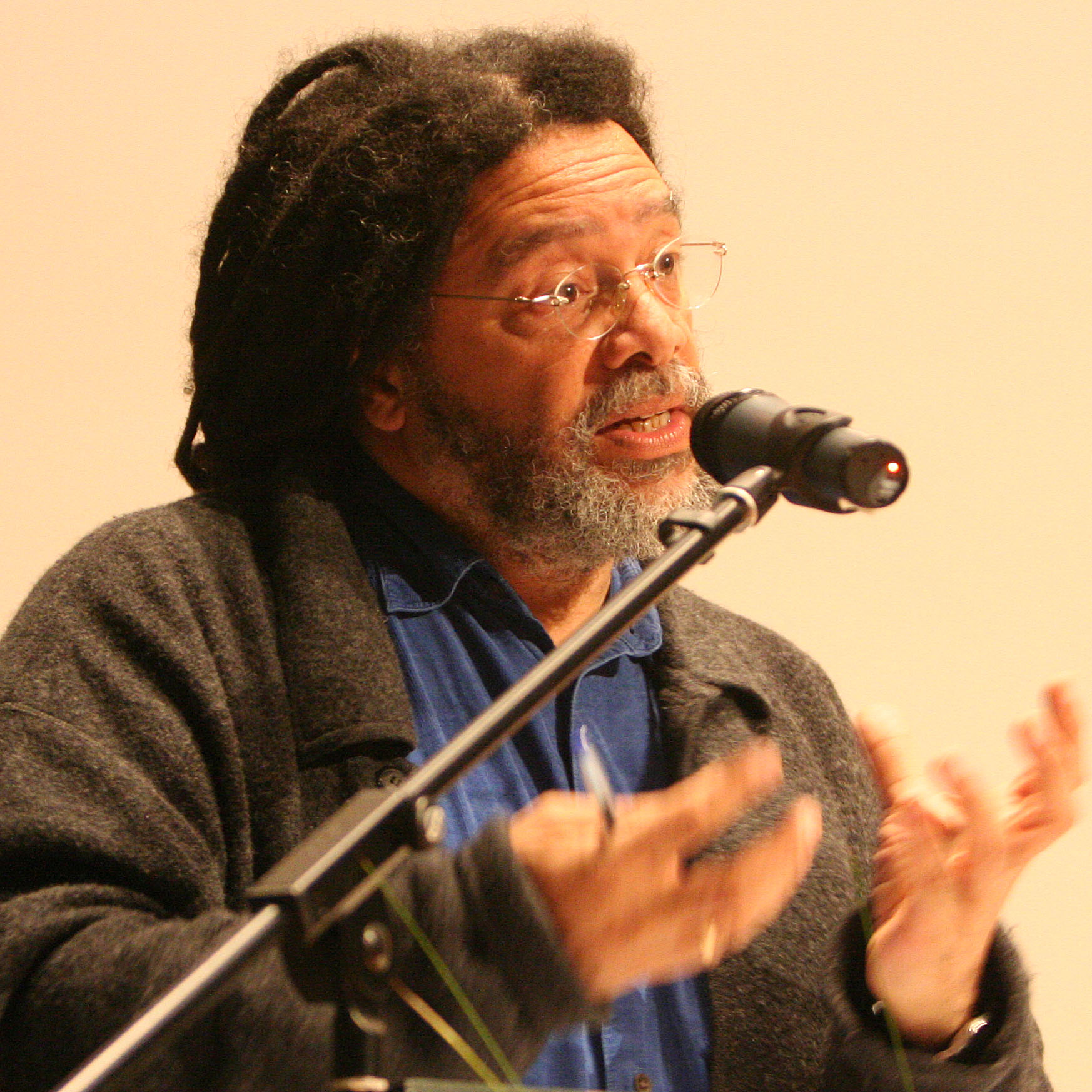 Tonight it’s the very last lecture of the Eindhoven Caucus. There are a few participants and a lot of new faces in the full auditorium. Annie introduces the last speaker, Gayatri Chakravorty Spivak. She is a professor at the Columbia University in New York and will speak about Alter globalization and conceptual art. Continue Reading »
Tonight it’s the very last lecture of the Eindhoven Caucus. There are a few participants and a lot of new faces in the full auditorium. Annie introduces the last speaker, Gayatri Chakravorty Spivak. She is a professor at the Columbia University in New York and will speak about Alter globalization and conceptual art. Continue Reading »
 Een donkere donderdagmiddag in Eindhoven, de regen plenst neer op de straat en op een legertje Caucus- deelnemers. Zij stuiven de stad in om duizend versgedrukte Be(com)ing Dutch Caucus Dictionary Readers te verspreiden onder het Eindhovense publiek. Niemand is veilig en geen plek wordt overgeslagen. De lobby van een hotel, brievenbussen, vitrines, toonbanken en autoruiten, overal liggen de boekjes nadat het legertje voorbij is gekomen. Af en toe is het net de Tour de France, wanneer weer een fietser een reader in zijn hand krijgt geduwd door een rennende soldaat van de Caucus.
Een donkere donderdagmiddag in Eindhoven, de regen plenst neer op de straat en op een legertje Caucus- deelnemers. Zij stuiven de stad in om duizend versgedrukte Be(com)ing Dutch Caucus Dictionary Readers te verspreiden onder het Eindhovense publiek. Niemand is veilig en geen plek wordt overgeslagen. De lobby van een hotel, brievenbussen, vitrines, toonbanken en autoruiten, overal liggen de boekjes nadat het legertje voorbij is gekomen. Af en toe is het net de Tour de France, wanneer weer een fietser een reader in zijn hand krijgt geduwd door een rennende soldaat van de Caucus.
 The panel of Sunday-afternoon starts of with a relaxed atmosphere and a busy room. Dieter Lesage unfortunately couldn’t be here, due to illness. Gerald Raunig however, is the first to admit that due to Lesage’s illness he can give a longer presentation. Phil Collins (not the Phil Collins, as Charles Esche pointed out in his introduction) admits his nerves about talking in front of an audience. Nevertheless it proves to be an entertaining afternoon. Continue Reading »
The panel of Sunday-afternoon starts of with a relaxed atmosphere and a busy room. Dieter Lesage unfortunately couldn’t be here, due to illness. Gerald Raunig however, is the first to admit that due to Lesage’s illness he can give a longer presentation. Phil Collins (not the Phil Collins, as Charles Esche pointed out in his introduction) admits his nerves about talking in front of an audience. Nevertheless it proves to be an entertaining afternoon. Continue Reading »

 This last Sunday begins with a conversation between Kobena Mercer and Nikos Papastergiadis. The subject, and they keep to it quite well, was Face and Facelessness and Place and Placenessless of the Other. Both got the opportunity to state their opinion about this before Charles Esche would, as he hoped, shape it into a dialogue.
This last Sunday begins with a conversation between Kobena Mercer and Nikos Papastergiadis. The subject, and they keep to it quite well, was Face and Facelessness and Place and Placenessless of the Other. Both got the opportunity to state their opinion about this before Charles Esche would, as he hoped, shape it into a dialogue.
Continue Reading »
 Paul Gilroy is the keynote speaker today. He is a lecturer on the London School of Economics and a sociologist. The title of his lecture is Multiculture and Conviviality in Postcolonial Europe. The auditorium is completely booked out. It is noticeable that had lectured before. He talks in a nice clear voice, enthusiastic but under control and pauses sometimes. The transparency was welcome, because his lecture is full of information, which passes in a steady rhythm.
Paul Gilroy is the keynote speaker today. He is a lecturer on the London School of Economics and a sociologist. The title of his lecture is Multiculture and Conviviality in Postcolonial Europe. The auditorium is completely booked out. It is noticeable that had lectured before. He talks in a nice clear voice, enthusiastic but under control and pauses sometimes. The transparency was welcome, because his lecture is full of information, which passes in a steady rhythm.
Continue Reading »
Als we Malu Halasa mogen geloven, heeft ze haar status bijna volledig te danken aan het Prins Claus Fonds: alleen zij subsidiëren haar fotoboeken met enige regelmaat. “In Europa wordt gedacht dat potentiële klanten niets willen weten over wat er in ‘verre’ landen aan de hand is. Daar geloof ik niet in.” Continue Reading »
“Misschien kunnen jullie me gelijk vertellen wat jullie van mijn boek vinden,” stelt kunsthistoricus Gerald Raunig bulkend van enthousiasme voor aan zijn workshopbezoekers. Dat bijna niemand ‘Art and Revolution’ gelezen heeft, mag de pret niet drukken: een zinderende brainstorm over het begrip revolutie volgt. Continue Reading »
Groot is ze niet, Chantal Mouffe, ze komt amper boven de spreektafel uit. Toch zal ze niet snel over het hoofd gezien worden, op ferme toon en met een zwaar Frans accent spreekt ze haar luisteraars toe. Het blijkt een pittige lezing over het verschil tussen ‘politics’ en ‘political’, het ‘wij en zij’ fenomeen en over conflicten. Continue Reading »